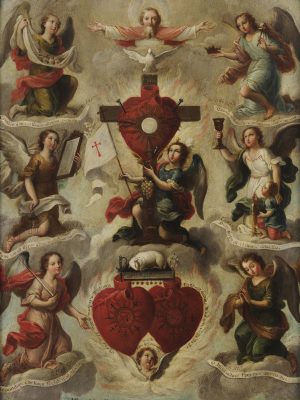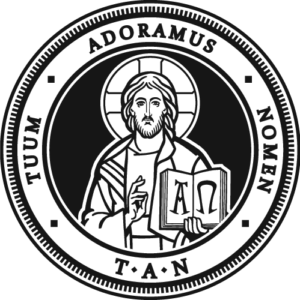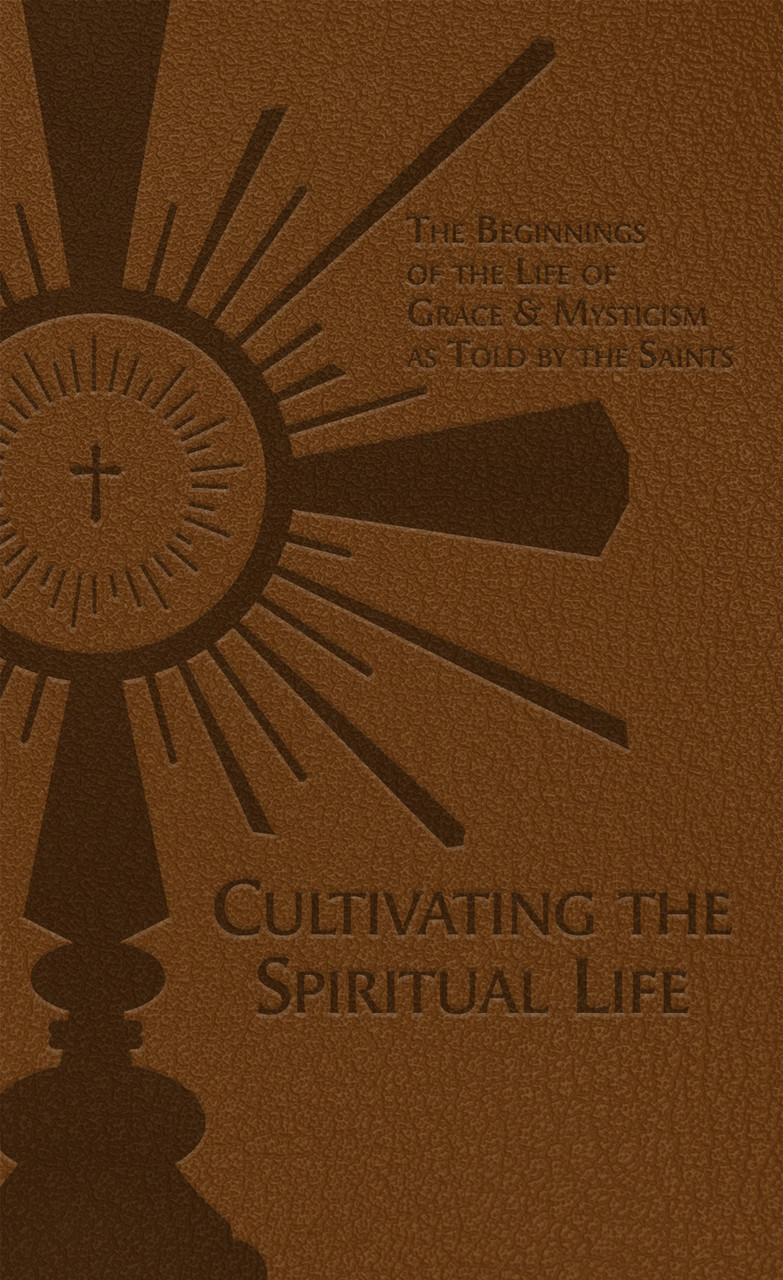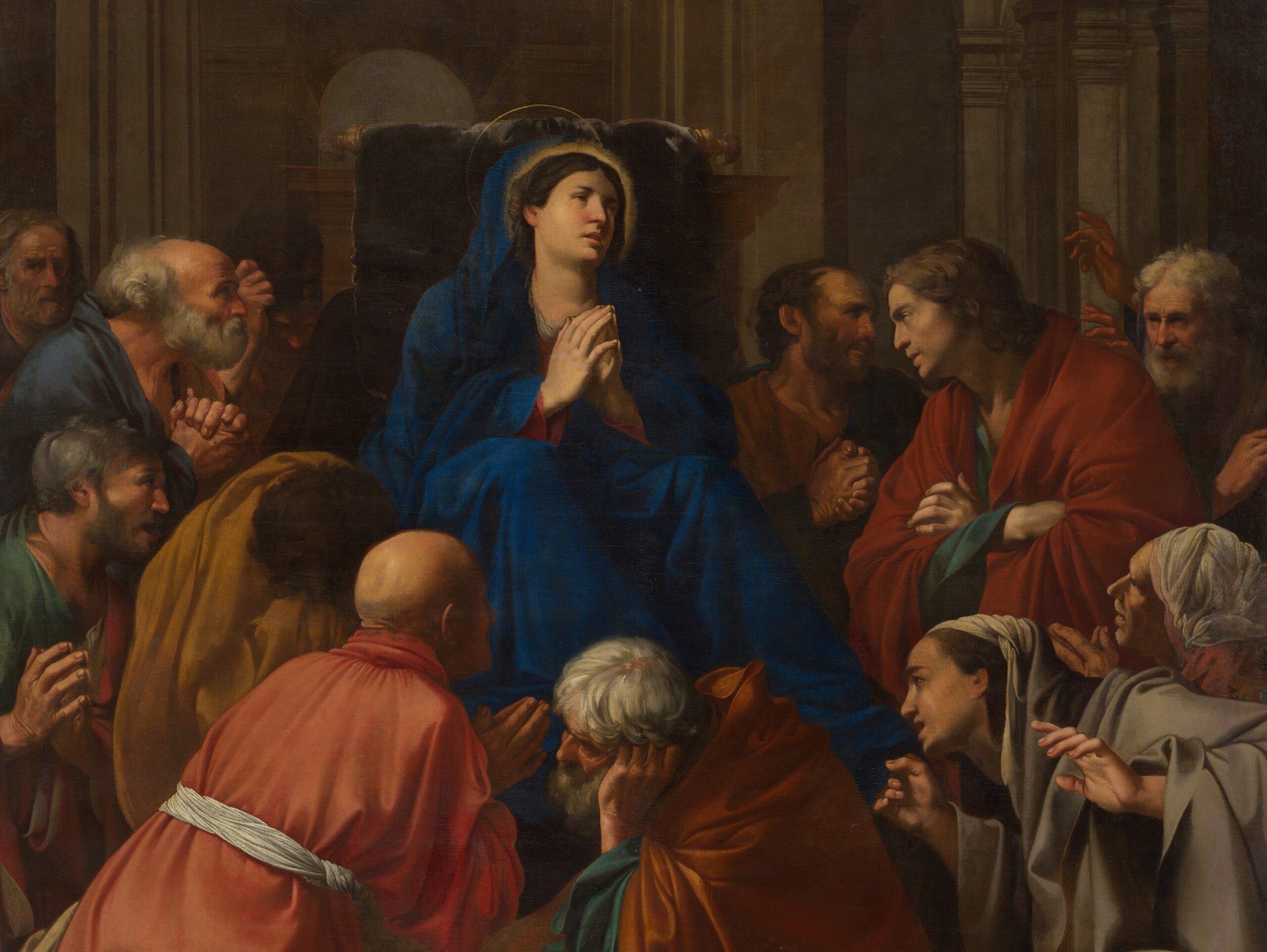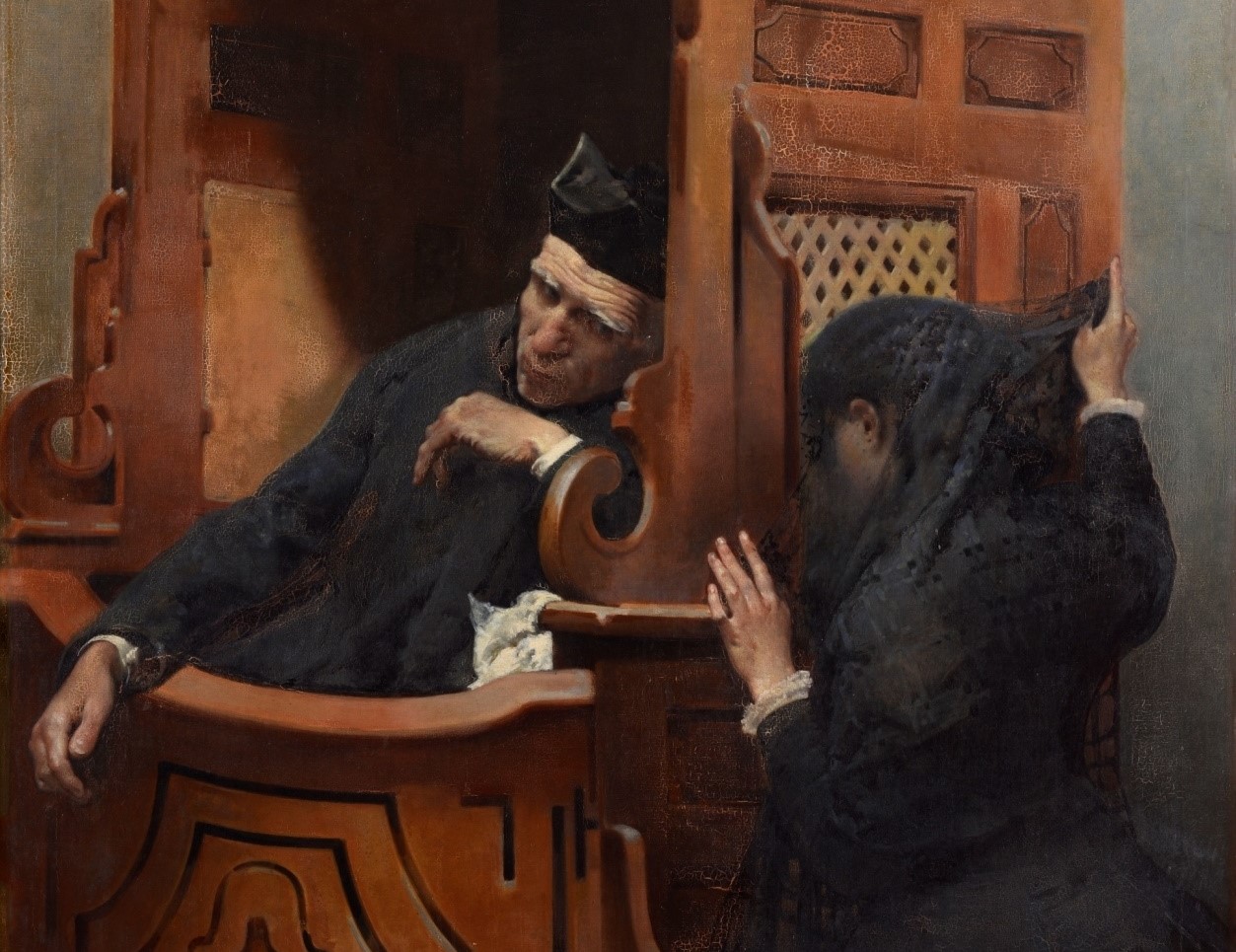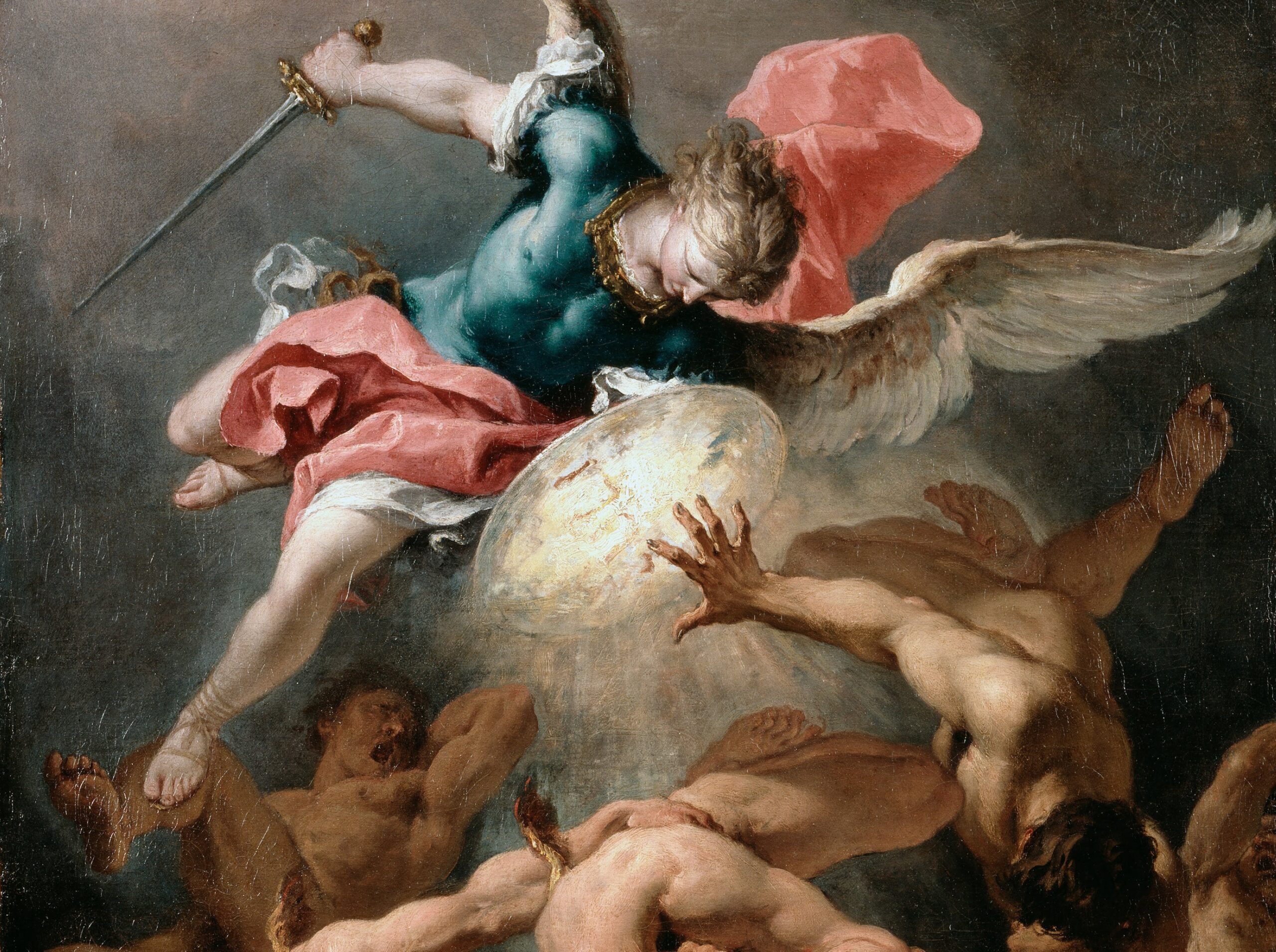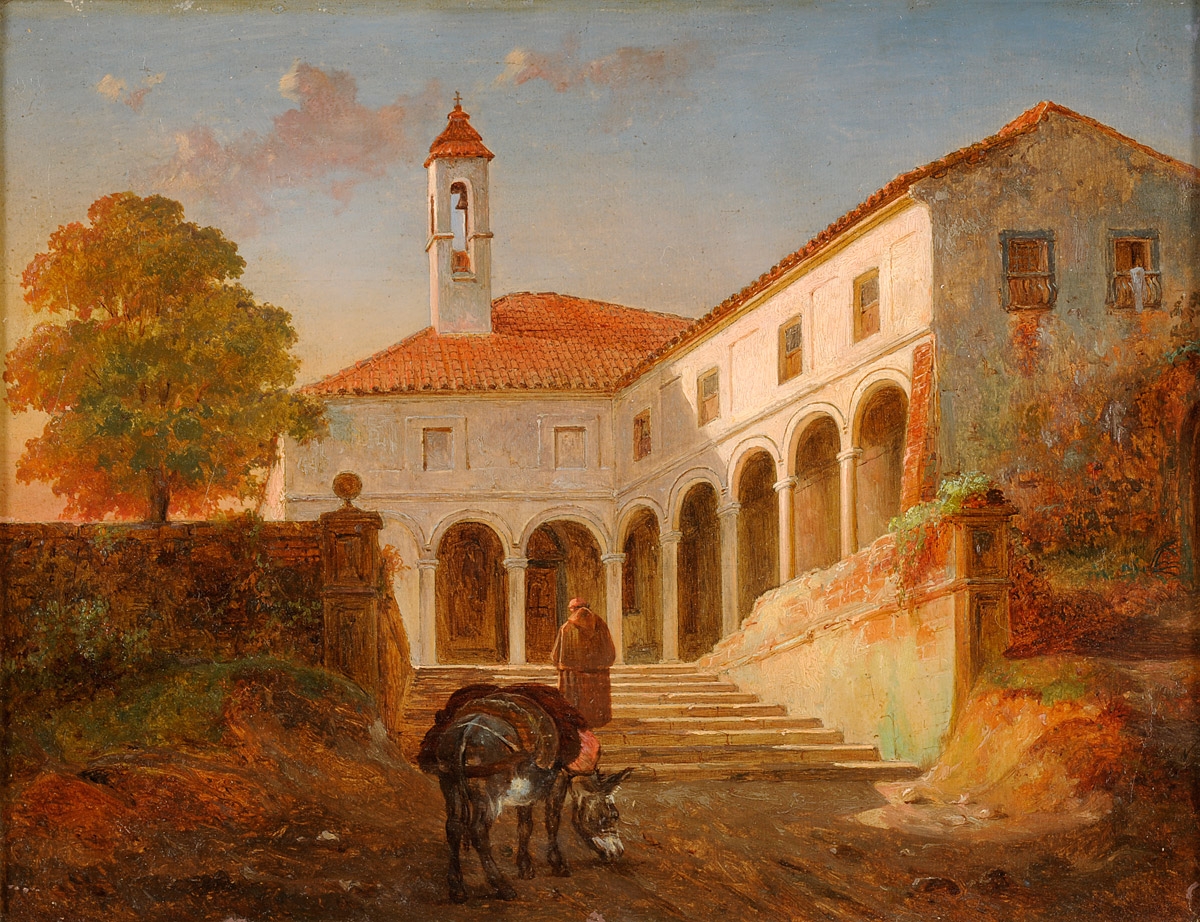In this rich meditation on the Holy Eucharist, Fr. Adolphe Tanquerey and other great spiritual writers explore how the faithful can truly profit from the Holy Sacrifice of the Mass and Communion with Christ the Victim. More than a sacred meal, the Eucharist is the living re-presentation of Calvary—offered for the glory of God and the sanctification of souls. Discover how right dispositions, deeper understanding, and spiritual preparation draw forth its abundant graces.
The Holy Eucharist is both a sacrament and a sacrifice. These two elements are most closely united; for the Sacrifice of the Mass makes present the Victim which we receive in Holy Communion. Communion is not, according to the common teaching, an essential part of the sacrifice; it is, however, an integral part since it is by virtue of communion that we partake in the sentiments of the victim and share in the fruits of the sacrifice.
—The Spiritual Life, 270
In the Catechism of Christian Doctrine which is in use in our Catholic schools, and which is familiar to all of us, after a dozen or so of questions and answers concerning the sacrament of the Holy Eucharist, we come to the words: “Is the Holy Eucharist a Sacrament only? No . . . it is also a Sacrifice”; words which, to a hyper-critical reader might almost suggest the thought that the Holy Sacrifice of the Mass should be regarded as in a manner subsidiary to the Sacrament of our Lord’s Body and Blood. This, of course, is by no means the case. In dealing with the Sacrament before touching on the doctrine of the Church regarding the Mass, the compilers of our catechism have wisely followed the example set by the Fathers of the Council of Trent, both in their preliminary discussions, and also in the final reduction of the conciliar decrees and canons. And indeed, the reasons which led them to adopt this course are not far to seek. For, until the dogmas of the Real Presence and of Transubstantiation have been established, it is plainly impossible to make good the sacrificial character of the Eucharist. In the words of our own Bishops: “If there were no power in the word of consecration to make the true body and blood of Christ really and objectively present, . . . we should not have on our altars the Victim of Calvary, and without its Victim the sacrifice could not subsist.” Nevertheless, it is worthy of remark that logically, and one may even say historically, the Eucharistic Sacrifice is prior to the Sacrament, since the reception of the latter is essentially a participation in the former, and pertains to its integrity. The Sacrament, as received by the faithful in Holy Communion, is the fruit of the Sacrifice. It is not merely the Body and Blood of our Lord, together with His human Soul and His Divinity, which we receive, but His Body and Blood under the special aspect of a Victim which has been sacrificially offered.
—St. Alphonsus Liguori, The Holy Mass
The essential difference between the Sacrifice and the Sacrament is that the sacrifice refers directly to the glory of God whilst the sacrament’s immediate end is the sanctification of our souls. These two objects are but one in reality, for to know and love God is to glorify Him. Each, therefore, contributes to our spiritual progress. . . . All is holy in this Divine Sacrifice; the Victim and the chief offerer, Jesus Himself, Who, says St. Paul, is “holy, innocent, undefiled, separated from sinners, and made higher than the heavens” (Hebrews 8:26). The Church in whose name the priest offers Holy Mass is likewise holy, whom Jesus has sanctified with his blood. The end for which such offering is made is holy, to glorify God and bring forth in souls the fruits of holiness.
—The Spiritual Life, 270, 394
The official and social homage rendered by the Church militant to God, Father, Son and Holy Spirit—that whole group of spoken formulas, of chants and ceremonies which is, as it were, the necessary accompaniment of the eternal Sacrifice—constitutes the most noble portion of divine worship, which is the essential tribute of adoration, thanksgiving, praise and impetration.
Even amid the figures of the old law, the importance of that prayer, the words of which were for the most part inspired by God, the general forms of which were fixed by the Church, was not overlooked; and it would be almost impossible to bring forward the many passages of Scripture in which the Holy Spirit asserts God’s rights in regard of this. Moses attaches blessings from on high to the fidelity of the people in observing not only the commandments of God but even the smallest details of His worship: “Keep the precepts of the Lord your God, and the testimonies and ceremonies which He commanded you. . . . that it may be well with you: and going in you mayest possess the goodly land, concerning which the Lord swore to your fathers.”
—Cecile Bruyere, The Spiritual Life and Prayer
The Sacrifice of the Mass first of all glorifies God, and glorifies Him in a perfect manner, for here Jesus Christ, through the ministry of the priest offers again to His Father all the acts of adoration, gratitude and love which He once offered on Calvary,—acts which have an infinite moral value. In offering Himself as victim, He proclaims in a manner most significant God’s sovereign domain over all things—this is adoration; in giving Himself to God in acknowledgement of His benefices, Christ offers to Him a praise equal to His gifts—this is thanksgiving, and it constitutes the eucharistic worship. Nothing can prevent this effect from taking place, not even the unworthiness of the minister, for the worth of the sacrifice does not depend essentially upon the one through whose ministry it is offered, but on the worth of the victim and on the dignity of the chief priest—no other than Jesus Christ Himself.
—The Spiritual Life, 271
ooo
This article is taken from a chapter in Cultivating the Spiritual Life by Fr. Adolphe Tanquerey, PSS compiled by TAN Books which is available from TAN Books.


